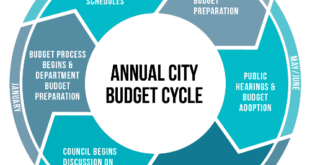
A scene from one of my long walks:
Ahead of me 10 paces on the sidewalk was a cylinder, flesh-colored. As I got near it, I wondered: Could it be a human finger?
When I got there, I realized it was a bandage, perfectly rolled, that recently fit on someone’s damaged finger, but I couldn’t just let that thought sit there. I wondered: If it were a finger, and I found it, what would I do? I’m a journalist, and a found finger is a story.
But I’m not supposed to be part of a story. So: Would I – should I? – call the cops? Or should I knock on the door of the nearby house, show the resident the finger and ask him (her) to call 911, so I could be merely the reporter?
What if the resident answers, and it turned out he (she) was a sadist who cut off his (her) sister’s (brother’s) finger in a family squabble? What if a kid came running out and picked up the finger, then sprinted around, showing it off to other kids in the neighborhood?
I have a restless mind. No situation, big or small, escapes my constant mental flipping, like an eternally not-quite-ready hamburger on a grill. I see or hear or smell something, and I have to walk it forward (or backward), run it through a cornucopia of possibilities, until it makes some sense.
Every successful journalist has his or her own key practice that boosts his or her reporting from the obvious to the “Geez, I wish I had thought of that.” I’ve always considered my restlessness my key. I don’t like to see, then write; I want to take the thing, whatever it is, apart and weigh it, test it, evaluate it, even project it.
Sixty yards later, I saw a woman leave a ground-level apartment unit. She was scowling, an unusual face on a woman who was walking two small, playful, fluffy dogs. She saw me, then went back to the apartment’s front door. She stuck her head inside. I heard her say something loudly, then she bounded out across my path and into a park across the street.
Turmoil had occurred inside the apartment. She had argued with her husband, boyfriend, sister, someone. When she got to the playground equipment in the park, she lifted one of the fluffy dogs into her arms. She embraced him, snuggled and smiled. She needed comforting, and the dog filled the role.
Had she been abused? Or was it just a simple quarrel, the kind friends and lovers always have?
Another few steps, and I saw three women with big hair exit a car. One was smoking a cigarette and shouting at the other two. All of them had shopping bags. It was after noon; were they sisters or friends who had shopped away the morning, then stopped for a cocktail at lunch? Now, the raw emotions that had built up in a morning together were pouring out.
I couldn’t hear well enough to know the cause of the squabble, but it continued as they walked to the nearby house.
Far up the street, a black pickup pulled into the driveway of a home under construction. I wasn’t paying attention at first; I assumed the two men were workers checking on the house’s progress.
But then, I saw one grab a spool of something: Hose? Cable? Electrical wires?
They looked at me for a moment, then drove off. Maybe I was witnessing a crime, theft from a construction site. I memorized the license plate, in case I heard of some neighborhood crime. Not trusting my memory, I took out my cellphone and called my home phone, reciting the license plate number to my voice mail.
As I was ending my walk, I saw a woman leave her house. She walked to her car, and grabbed a gallon of milk.
Apparently, she had taken in the rest of the groceries in earlier trips. But why had she left the gallon of milk? It was a warm day for late October, and milk had to be among the most perishable of grocery items. Why was it not first?
None of that walk’s encounters was important from a news standpoint. But my constant analysis, looking for patterns or meanings or motives, has become my reporting crutch. I rarely get an actual story on my daily walks, but I keep myself sharp, in practice for the next time I have to chase something of substance.
THE FINAL WORD: I am starting a collection of words that disqualify a quotation. If a new CEO says he or she is “excited” to be joining the company, that quotation won’t be in my story.
Another disqualifier is “interesting.” As Mr. Bishop, my favorite high school English teacher, once said, “If someone says ‘interesting,’ it almost always means the opposite.”
And don’t get me started on “awesome.”
Jim Stasiowski, a managing editor at the Rapid City Journal, welcomes your questions or comments. Call him at (605) 716-0981 or write to 1122 City Springs Road, Rapid City, S.D., 57702.
 Nevada Press Association The best in Nevada journalism since 1924
Nevada Press Association The best in Nevada journalism since 1924



